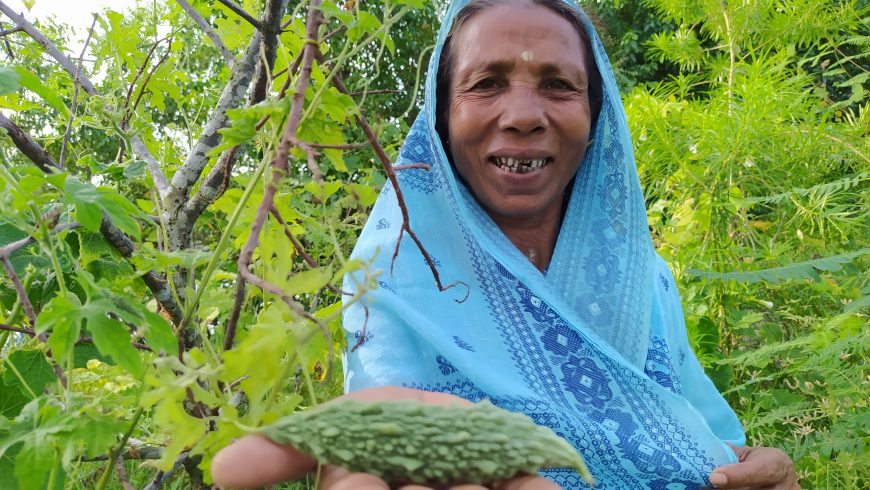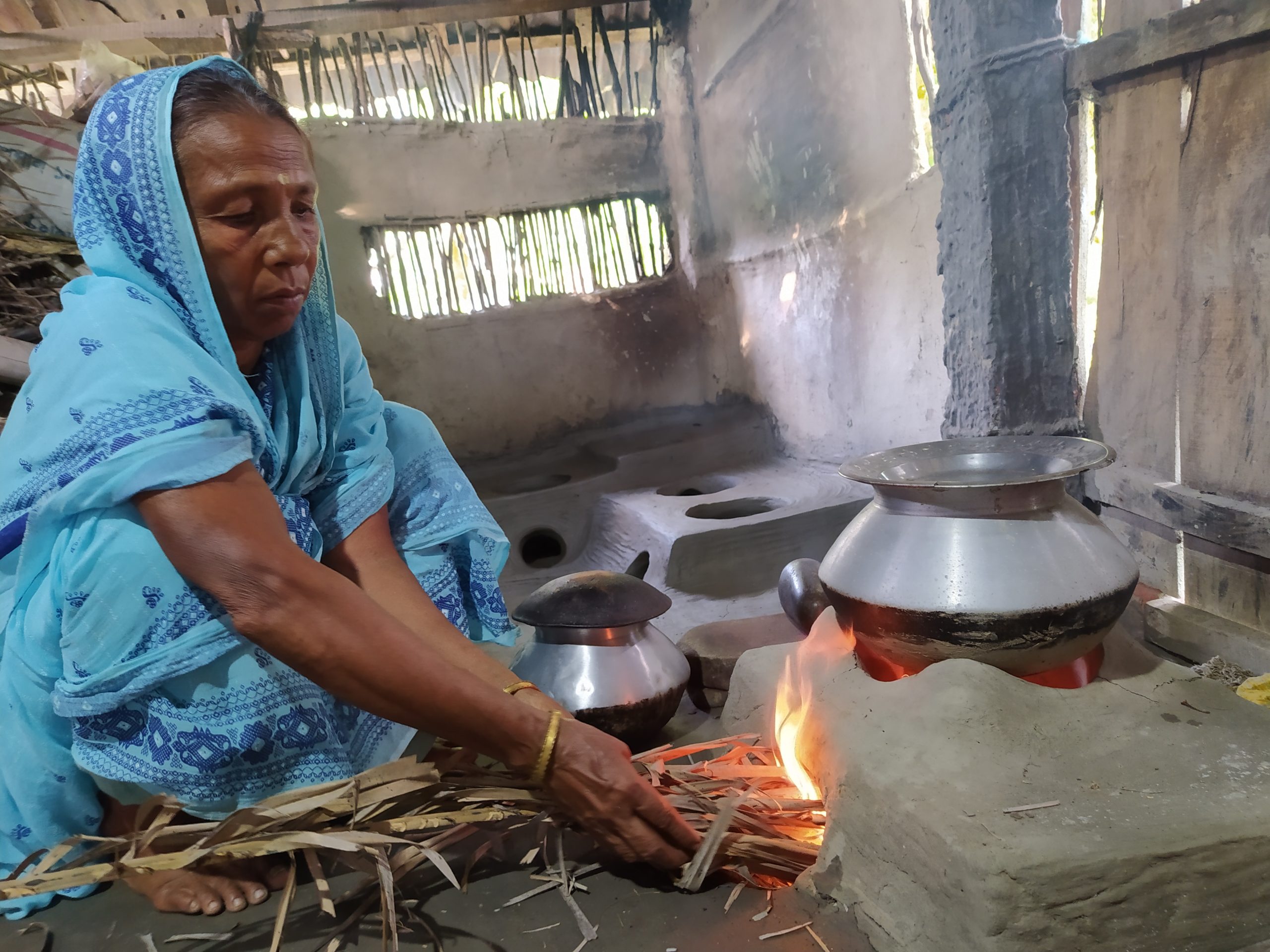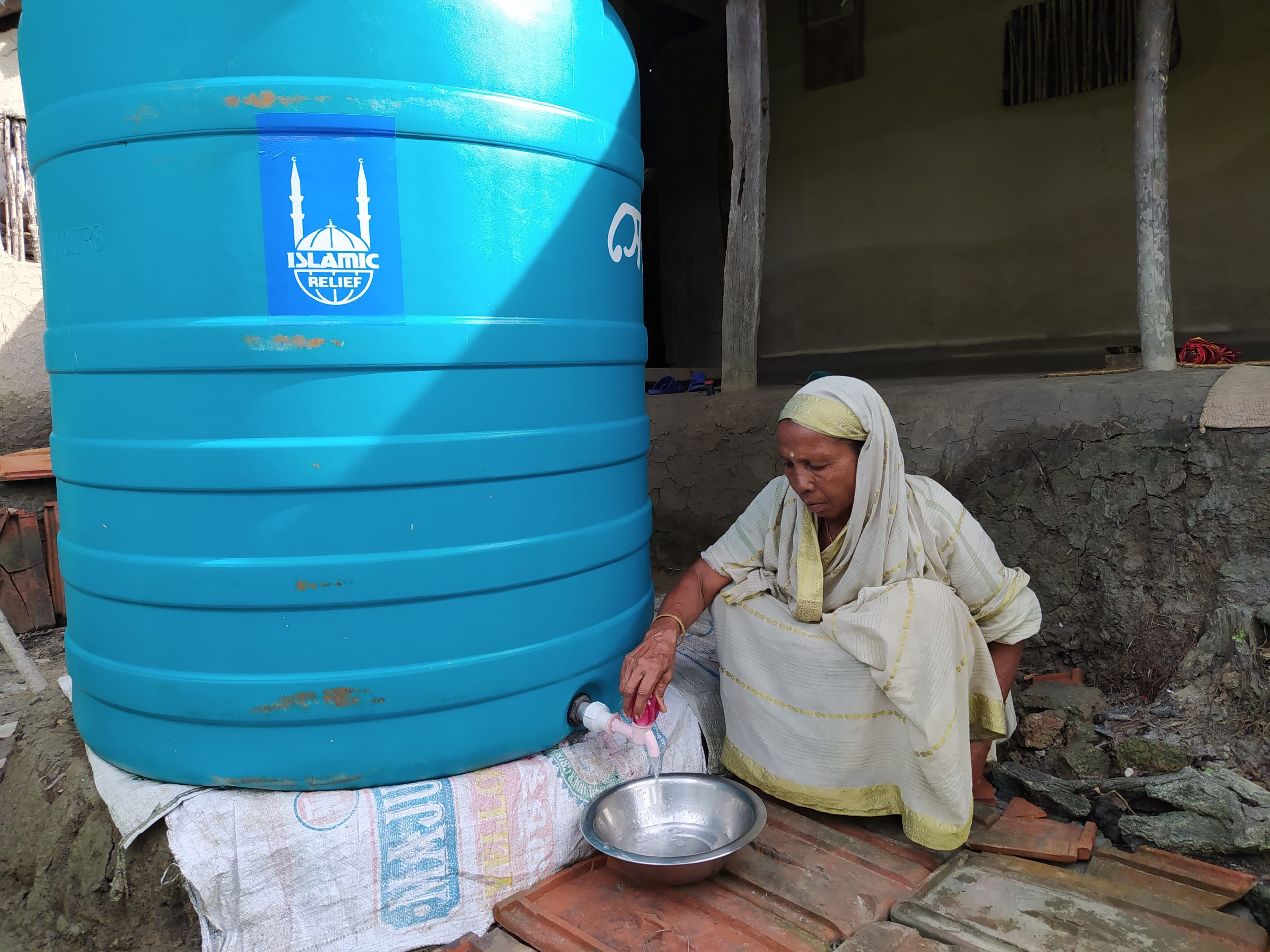There are over 962 million older people worldwide, according to the United Nations. Many face greater risks and difficulties in accessing health, social protection, care and justice.
Geeta lives in Bangladesh, where one in four women are widowed or divorced by the age of 50 – leaving them vulnerable to poverty, poor health and abuse.
Her family thought marriage would be a way out of the poverty she was growing up in, so she was only 12 when she got married. In those days it was common practice for girls to be married early in her village in Shyamnagar in the Satkhira District. Sadly, marriage only increased Geeta’s hardship.
In the first ten years of married life Geeta had four children, three girls and a boy, but it was only her son that went to school. It pained Geeta that her daughters were deprived of an education, but she could do nothing about it. Her husband Pravash was a fisherman who would catch fish in the adjoining canals and rivers around the mangrove Sundarban. His income was not enough to support the family, let alone send their daughters to school.
Life took a turn for the worse
One day, just after their eldest daughter’s wedding, Pravash went out fishing amid heavy rain. He fished for three days despite arduous weather conditions and returned with lot of fish. Unfortunately, he also came home with a high fever, and passed away three days later.
Losing her husband so unexpectedly was a terrible blow for Geeta. He was the family breadwinner, and she was left to bear the expense of running her household and educating her son. Geeta was completely devastated but was determined to do whatever it took to support her family.
She worked as day labourer, sometimes catching fish in the river, sorting out snails or taking on odd jobs. She never refused any work that would help feed her children and worked tirelessly for years until her son was educated and her daughters were married. When her son graduated he went to work in India and she finally looked forward to a life of less hardship as he became the breadwinner of the family.
Sadly, things did not go to plan for Geeta. Living in Satkhira, she was used to surviving and recovering from drought, floods, waterlogging, cyclones and tidal surges that wreak havoc on people’s lives and livelihoods. But in 2019 Geeta became one of 26 million older people affected by disasters every year, when cyclone Bulbul damaged her house so badly that a portion of it was completely destroyed. Helpless and alone, she had to ask her son to come back and help her repair it.
According to the World Health Organization, 80% of older people in developing countries lack a regular income.
Facing the future with confidence
Geeta’s life finally turned a corner when Islamic Relief began a recovery programme to help people affected by cyclone Bulbul. She took part in a cash-for-work scheme that paid her BDT 4,800 (around $78) in wages and she used the income to buy a goat. Islamic Relief also gave her seeds to grow vegetables in her homestead garden and surrounding areas.
Today Geeta has three goats, two ducks, some chickens and is growing more vegetables than she needs so is able to sell them for a profit. Her life has also been made easier thanks to the water tank Islamic Relief provided, allowing her to store 1,000 litres of rainwater instead of walking miles each day to fetch water.
Geeta has faced poverty and vulnerability her whole life due to natural disasters, but has also had to live with ignorance and prejudice as a woman trying to survive in a society in which women are traditionally dependent on men. Today, with a little help from Islamic Relief, she has turned her life around and is proud of being able to support herself and others – not just because she has to, but because women can.
Committed to ensuring older people are protected and included, Islamic Relief is mainstreaming the needs of older people in our programming around the world. With your support, we can continue to help incredible people like Geeta.


